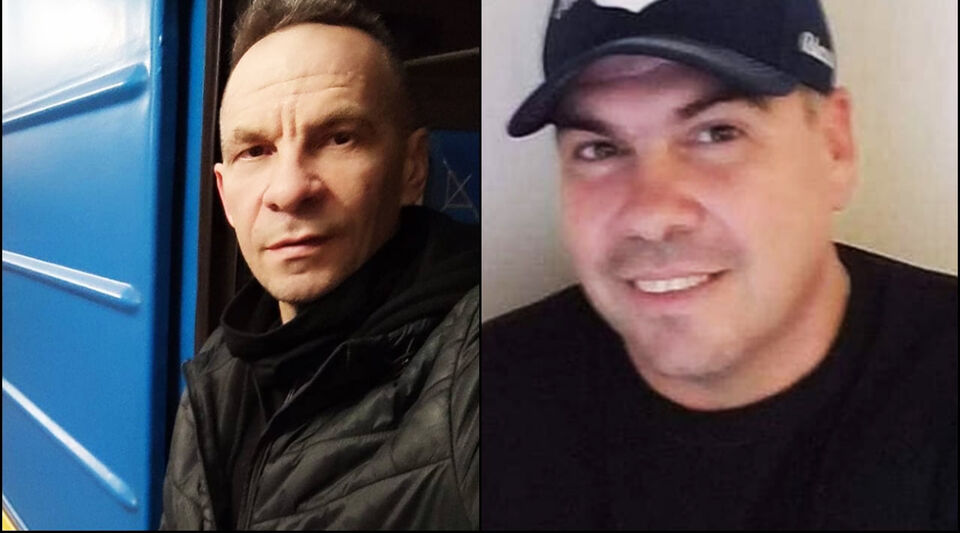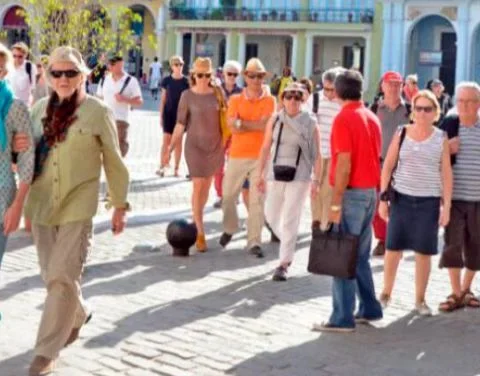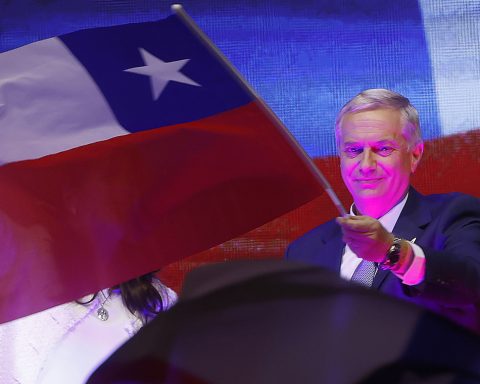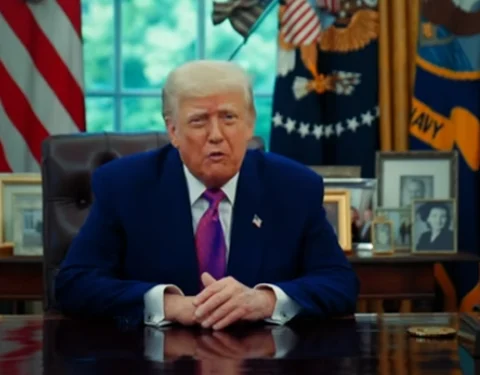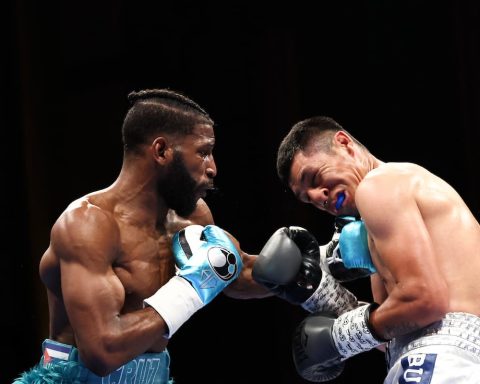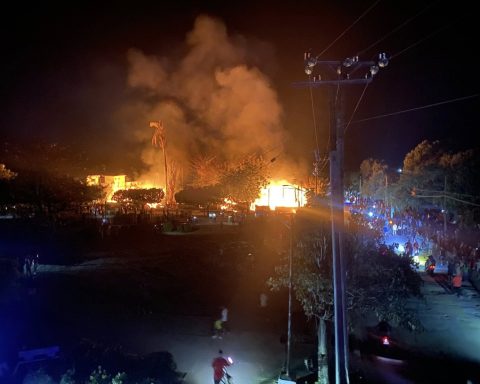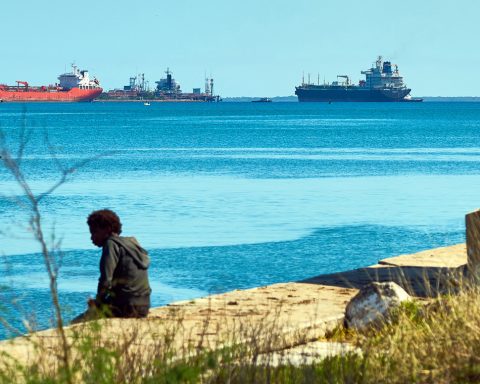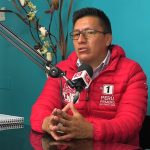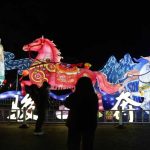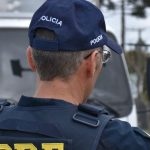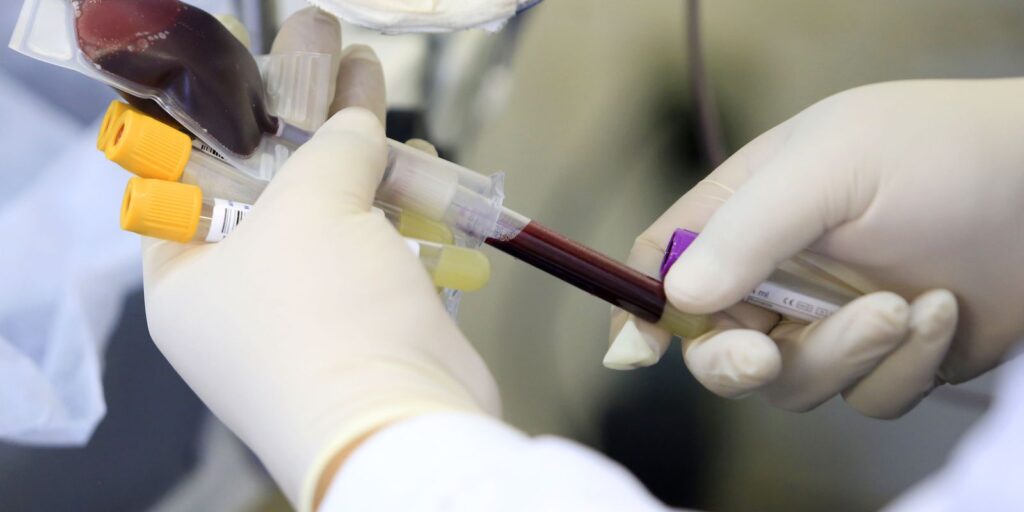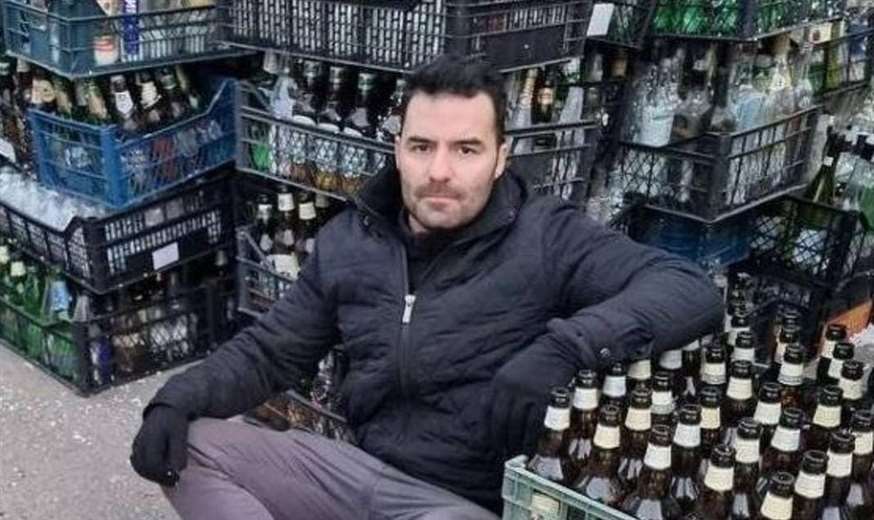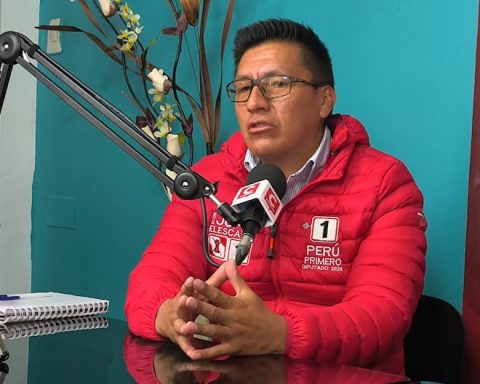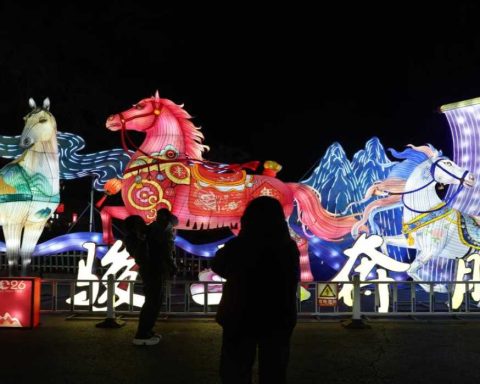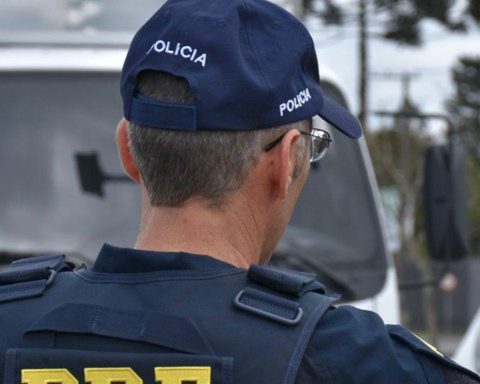Until a week ago, the life of Cuban Reinaldo Powell was very quiet, between his family and the dance classes he has given to earn a living for almost 30 years in Kiev. On Thursday, after russian troops began a military aggression against Ukraine, unprecedented since World War II, this 53-year-old man from Holguín found himself together with his wife, Galia, and their daughter, Anabell, like many inhabitants of that city, going down the subway to protect themselves from a possible attack.
“The first two days we were in the tunnel, where they treated us very well,” he tells 14ymedio via telephone. “They gave us hot water to make tea or coffee, and each family brought their own food.” Despite the solidarity among those sheltering, they did not have a good time. “It was cold, and sleeping on the floor is not easy, even though we had mattresses and blankets.”
Once a day, “after the attacks, around eleven or twelve,” they could go out shopping. Since the family lived nearby, they took the opportunity to go to their house, where they could bathe. There they caught the curfew on Saturday and they no longer returned to the subway.
Since then, “when the siren sounds, which sounds many times a day, we take shelter in the bathroom. My wife and daughter get into the bathtub and I stay next to them, covering ourselves with blankets and sacks.”
Powell, who chairs the Association of Cubans in Ukraine, explains that some 200 compatriots reside in that country, 50 of whom live in Kiev. Now, there are barely a dozen left in the capital.
Despite the solidarity among those sheltering, they did not have a good time. “It was cold, and sleeping on the floor is not easy, although we had mattresses and blankets”
Ernesto Pérez, a friend of Powell himself, is one of them. “Every day, for seven years, planes have passed and bombs have been heard,” this 47-year-old man from Havana told this newspaper, who, with his wife, 17-year-old son, in-laws and their dog Tikito, remains at home. , in a wooded area of Irpin, on the outskirts of the Ukrainian capital.
Arriving in Ukraine 22 years ago to get married, he has been renting offices ever since. Now, he can hardly believe what is happening. “This is crazy,” he qualifies. “We can’t get out, all the roads are blocked and there are clashes everywhere.”
The passage of planes and bombing has intensified since February 25, when the Ukrainian army blew up the bridge over the Irpin River as an alternative to try to prevent the arrival of Russian troops in Kiev.
The 10 families that live in the same place are supplied by a water well that a neighbor has. “We are cooperating among all of us who are left here,” hoping, “may God,” for this to end, says Pérez.
Meanwhile, he laments, at a time when temperatures range between 4ºC maximum and -1ºC minimum, “there is no heating,” and for four days, the power outages have been more constant. “We charge the mobiles when the electricity arrives, but they can take it off at any time.
Another Cuban in Kiev is the baseball player Raidel Arbelay Becerrawho shared his criticism of Russia on his social networks when, on Tuesday, the central television tower in Ukraine was bombed.
Five people were killed in that attack, including Yevhenii Sakun, former cameraman for the Spanish agency EFE, and five others were injured. “A rocket instantly killed all the people passing by,” Becerra said. “Putin keeps ‘saving Russia’ from ‘Ukrainian fascists,’ as he puts it. I don’t know how he can sleep every day.”
Reinaldo Powell cannot name the Russian president without profanity, and he staunchly defends an independent Ukraine, whose history he unravels in haste.
“Putin thinks that since this country was the breadbasket of the Soviet Union, it will always be theirs,” he says. “As a KGB person, he wants to revive that USSR uniting Kazakhstan, Belarus and other former Soviet republics, he says that to ‘defend’ himself from the United States, which he says wants to attack it. I’m sure that’s not the case. He creates his own own cockroaches on his head.
Arrived in Kiev as a student when the territory was part of the USSR, in 1986, he returned to the island, married to the Ukrainian Galia, in 1991, but for a short time. At the age of three, he returned to the Ukrainian capital, where he settled as a choreographer and dance teacher. He soon became an entrepreneur, with a company that today has ten subsidiaries throughout the country.
“We took off that old sheet and I, along with them, have been growing,” he acknowledges, “I have been changing my opinion”
No one has to tell him, then, what the change from a gray place was like, where people had, in his words, “poor eyesight”, that “they had only seen one thing, communism, and had not had the possibility of to travel, to get to know, to listen to others”, to a “liberal” country, full of talented young people and the desire to copy their neighbors from the West, such as Poland, more than the bear from the East.
“We took off that old sheet and I, along with them, have been growing,” he admits, “I have been changing my opinion.”
As an example, he says that he respected the Cuban government, but that he stopped doing so on July 11. “I completely changed my way of thinking, seeing that a president was capable of raising his hand to his own people, that he didn’t elect him either,” he says. Together with other compatriots, those days they demonstrated in front of the Cuban Embassy in Ukraine, where “everything they shouted there we shouted here, you know,” he mentions, referring to the insults to the police and to President Miguel Díaz-Canel .
With the Cuban diplomatic headquarters, he assures that the association of compatriots he chairs had ties, but that he began to break them in 2014, when Russia annexed Crimea and the Island Government sided with Putin.
“The current government is nothing more than a puppet of the Putin doctrine, which forgave its foreign debt and signed new agreements,” he says.
Far from their country of origin, in any case, Cubans hope that the conflict will end soon. However, Putin threatens with escalating attacks, and the reserves of the Ukrainians in shelter are dwindling. Ernesto Pérez has had to reorganize the pantry this Wednesday. “We have to extend it, we have food for about two weeks.” Rationing has reached the dog, who has had to start eating “some apples”. He doesn’t know what will happen if the situation continues.
Powell also doesn’t know what they’re going to do from now on. “The economic situation has been declining, we already have very little money left and I don’t know how we are going to continue to survive,” he lamented. “Prices have gone up, some things have disappeared from the market. I hope this ends as soon as possible.”
He speaks of his dances as something far away in time, as if it hadn’t been his life, uneventfully, until a week ago. “I don’t know when I’ll take them back, I’ll have to ask my friends for some help.”
________________________
Collaborate with our work:
The team of 14ymedio is committed to doing serious journalism that reflects the reality of deep Cuba. Thank you for joining us on this long road. We invite you to continue supporting us, but this time becoming a member of our newspaper. Together we can continue transforming journalism in Cuba.
